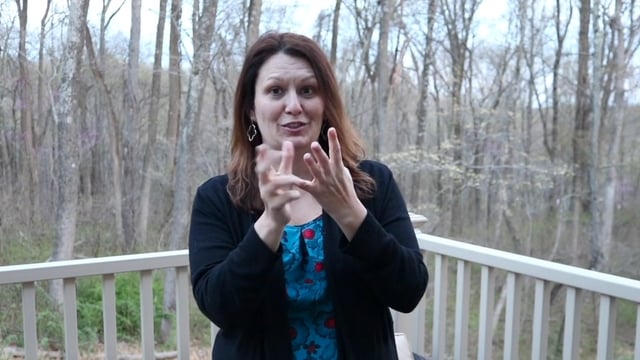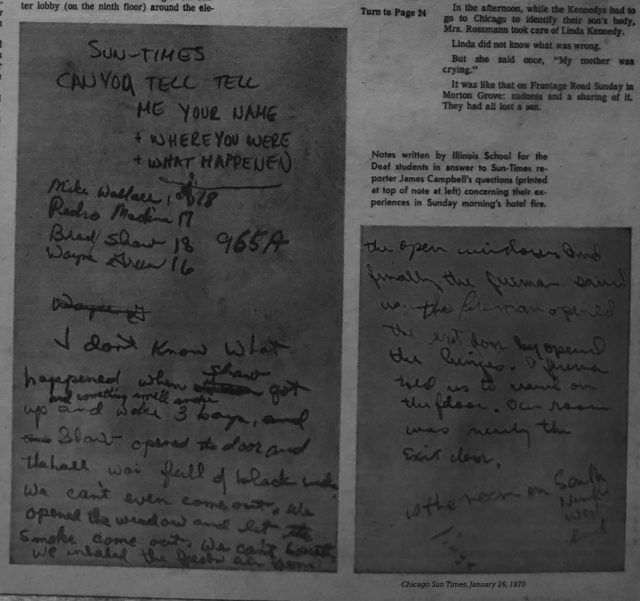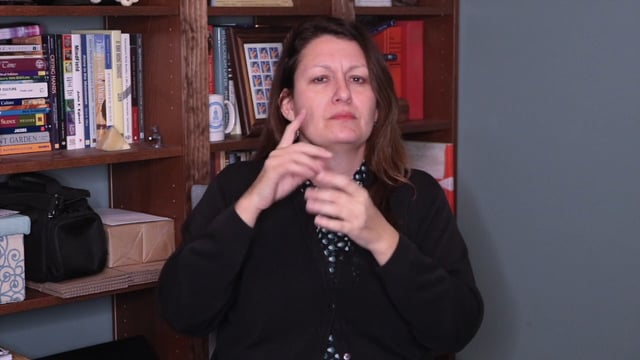Two incidents took place recently that made me think about the inherent, subconscious biases that we all carry and how they spill over into our interactions with others. The first incident was when I took my two-year-old daughter in for allergy testing. We went to a different clinic from the one we usually go to, so I wasn’t sure who the interpreter would be. The interpreter arrived a bit out of breath because he was late, but he was pleasant enough.
My daughter, as she usually does with anyone who even as much looks at her, started chatting away with the interpreter in American Sign Language (ASL). Keep in mind that the appointment was for my daughter, and so the interpreter was primarily there to facilitate communication for her, although he obviously was there for me also. I found it worthy of note that he never once asked what our communication preferences were.
Halfway through the appointment, as we were waiting for the nurse to return, the interpreter and I began chatting politely. He said, referring to my daughter, “I’m impressed by her language. Normally, with kids that age, I have difficulty understanding their ASL, but she’s so clear and easy to understand.”
“That’s probably because her first language is ASL,” I replied.
The interpreter nodded knowingly and said, “Yeah. And I’ve noticed she responds really well to my voice, too, and to other people’s voices, too. She listens intently and understands their voices really well.”
I was thrown off for a few seconds. I finally said, “Really? She’s deaf.”
The interpreter paused in confusion and then said slowly, “You could’ve fooled me.”
Before I could say anything more, the nurse returned. After the appointment, I reflected on the conversation. Obviously, the interpreter hadn’t been told that my daughter was deaf. What bugged me about his statement, though, was that my daughter responded really well to voice.
Of course she would have responded well to voice, had she been hearing. But why would the interpreter—who mistakenly thought my daughter was hearing—even say such a thing? Was the interpreter speaking with a bias that hearing children of deaf parents don’t respond as well to voice as hearing children of hearing parents? Anyone who is hearing and has deaf parents will immediately tell you this is one of the most bizarre misconceptions.
I shared this encounter with several hearing friends who have deaf parents and they all told me that their parents often were praised for raising hearing children who had excellent speech skills. I also shared my experience with a deaf colleague who has three hearing children. He recounted how, at a parent-teacher conference, the teacher shook her head in amazement and said, “I don’t know how you do it.” She was referring to how he and his wife, also deaf, could raise three “normal” children.
The second incident happened a few weeks later. On an e-mail list, an interpreter (who is certified, by the way) posted a request for interpreters for an event the following day. Buried within the e-mail was this:
Why? Free Delicious Dinner! You WILL get a real dinner break far away from the deaf people if you prefer! Payment right away! If you bring your invoice to the event, we will have a check waiting for you! Platform stuff can be fun!
While I understood the intention behind this message—interpreters often aren’t allowed to eat on the job because they need to interpret and logistically, it’s not easy to eat and interpret—but the “far away from the deaf people” line struck me as insulting. “Far away” implied to me that she perceived deaf people as having an affliction and being bothersome or a nuisance. I e-mailed the interpreter and suggested that she use better word choices. I also reminded her that interpreters aren’t for “the deaf people” only; they’re also for the hearing consumers.
Her initial responses were flippant and cheerful, probably because she didn’t realize just how serious I was until a few messages later. She also didn’t realize that I was deaf in the first few messages. She then apologized and asked if we could talk on videophone so that she could “explain” (explain what, she didn’t say). I responded saying that I didn’t need any explanation, but that she might want to examine her subconscious, even inherent, biases.
A few days later, the interpreter who posted that message sent another e-mail to the list. An excerpt from her e-mail said:
I also would like to apologize that my description in the email of eating dinner “far away from the deaf people” came across as insulting. It was never my intention to undermine the relationship between interpreters and the deaf community. My (deaf) brother would argue that I work to strengthen those relationships. My intent in that comment was that interpreters would be advocated for in having a work-free dinner.
I’m not sure why she felt the need to emphasize that her brother was deaf—just because someone has a deaf relative does not automatically mean that person is free from biases or has more validation within the community. Even so, I’ll take her apology at face value.
In both situations, the interpreters displayed deeply rooted biases, probably unintentionally. Unfortunately, such biases exist all around and help perpetuate frustrating misconceptions. Interpreters are allies. They must think, act and speak as allies—and this needs to be reflected in their language and word choices at all times.
Granted, biases are difficult to identify sometimes and even more difficult to eradicate. Still, it’s important to be conscious of subtle biases that aren’t noticeable in everyday language or even in thought processes.
One thing’s for sure: I will now always wonder whether interpreters want to be “far away from the deaf people”—meaning, me—at any event they work.
Copyrighted material. This article cannot be copied, reproduced, or redistributed without the express written consent of the author.





